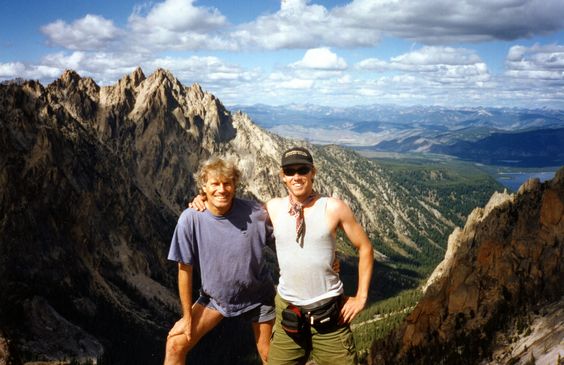Millennial Driven World Needs a Time Out
There is Nature, Nurture, now there is Nature - Tech are you ready for the power of it all. Millennials have been heavily criticized for their obsession with technology, they have been evolving as collaborators, multitaskers, and consumers of complex information. In short, they are becoming exactly the kind of employees and eventually a future leaders that an organization can leverage in today’s interconnected world. Organizations need to learn to see the benefits of such behavior and harness it. After all, by 2025, this generational cohort will, by some estimates, account for nearly 75% of the workforce. So smart leaders should start seeing how to capitalize on their assets, integrate them into the organization, and leverage and experiment with their talents cross-generationally.
PC: Cynthia Magana
How Millennials tick: What we know
As a fervent ‘experimentalist,’ and someone with a background in neuroscience, I like to start with what makes Millennials tick. Here are some recent scientific research findings on the millennial brain that I’ve been sharing with leaders and organizations to which I provide Conversational Consulting. Two of the characteristics I find fascinating to explore and challenge are ‘social sharing’ and ‘multi-tasking.’
Social Sharing makes them feel good: Social sharing lights up a part of the brain called the temporoparietal junction which stimulates the production of oxytocin, “the feel-good hormone.” Millennials, more than any other generation, have grown up interacting online and with higher levels of ‘interaction dynamics’ than other generations. They have learned that by posting, IM-ing, liking, and sharing with each other – conversations driven by technology can give them an even higher oxytocin boost than interacting in person. In fact, the frequency and feel good of ongoing contact through technology has the ability to elevate oxytocin and dopamine, mimicking what happens when we have a drug addiction.
Your Nature brain
When you head out to the desert, David Strayer is the kind of man you want behind the wheel. He never texts or talks on the phone while driving. He doesn’t even approve of eating in the car. A cognitive psychologist at the University of Utah who specializes in attention, Strayer knows our brains are prone to mistakes, especially when we’re multitasking and dodging distractions. Among other things, his research has shown that using a cell phone impairs most drivers as much as drinking alcohol does.
Strayer is in a unique position to understand what modern life does to us. An avid backpacker, he thinks he knows the antidote: Nature.
"Our brains, aren’t tireless three-pound machines"
On the third day of a camping trip in the wild canyons near Bluff, Utah, Strayer is mixing up an enormous iron kettle of chicken enchilada pie while explaining what he calls the “three-day effect” to 22 psychology students. Our brains, he says, aren’t tireless three-pound machines; they’re easily fatigued. When we slow down, stop the busywork, and take in beautiful natural surroundings, not only do we feel restored, but our mental performance improves too. Strayer has demonstrated as much with a group of Outward Bound participants, who performed 50 percent better on creative problem-solving tasks after three days of wilderness backpacking. The three-day effect, he says, is a kind of cleaning of the mental windshield that occurs when we’ve been immersed in nature long enough. On this trip, he’s hoping to catch it in action, by hooking his students—to a portable EEG, a device that records brain waves.
It needs a little more in the transition to Wilderness Experience, relating to, and expanding on the preceding information and study. “On the third day my senses recalibrate—I smell things and hear things I didn’t before,” Strayer says. The early evening sun has saturated the red canyon walls; the group is mellow and hungry in that satisfying, camp out way. Strayer, in a rumpled T-shirt and with a slight sunburn, is definitely looking relaxed. “I’m more in tune with nature,” he goes on. “If you can have the experience of being in the moment for two or three days, it seems to produce a difference in qualitative thinking.”
Perhaps there is something about your experience taking 10 days out in the wilderness. Terry has observed that no matter the length of the trip, whether it is 7 days, 10 days, or 14 days - something magical happens and shifts after the 7th day.
Are you ready? The incredible co-facilitators: Terry Tillman and Mark Harradine are at it in Idaho on August 9-18 for the Wilderness Experience. Come play and get away from the density as differentiation provides the spice of life in nature.



